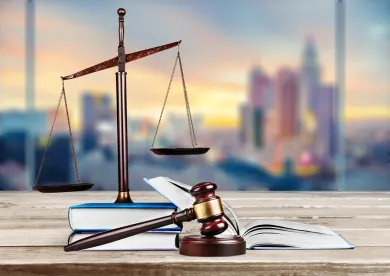The following telephone arguments will be available to the public live. Access information will be available by 9 AM ET each day of argument at: http://www.cafc.uscourts.gov/public-access-arguments.
Monday, June 7, 2021
Energy Heating LLC, v. Heat On-The-Fly, No. 20-2038
Energy Heating, LLC (“Energy Heating”) sued Heat On-The-Fly (“HOTF”) and Super Heaters North Dakota (“SHND”) in the District of North Dakota seeking a declaratory judgment of noninfringement of HOTF’s U.S. Patent No. 8,171,993 (“the ’993 patent”). Energy Heating also asserted claims of tortious interference with contract and with prospective business relationships. HOTF counterclaimed for infringement of the ’993 patent against Energy Heating and third-party defendants Marathon Oil Corporation and Marathon Oil Company (collectively “Marathon”). Energy Heating and Marathon then sought a declaratory judgment that the ’993 patent was unenforceable due to inequitable conduct, alleging the inventor of the ’993 patent failed to disclose to the U.S. Patent and Trademark Office his own public use and sale of the claimed invention.
Following a jury trial, the jury found in favor of Energy Heating on the tortious interference claims and the district court found that the ’993 patent was unenforceable for inequitable conduct due to the inventor’s failure to disclose. Energy and Marathon then moved for attorney fees under 35 U.S.C. § 285, but the district court denied the motion. Applying Octane Fitness, the district court found the case was not “exceptional” under § 285, noting HOTF “provided a meritorious argument against a finding of inequitable conduct.”
Energy Heating appealed the district court’s denial of attorney fees. The Federal Circuit vacated and remanded, holding the district court’s factual findings as to exceptionality were inadequate. On remand, the case was referred to a magistrate judge. Finding Energy Heating’s case was “substantively weak,” the magistrate judge recommended that the district court find the case “exceptional” and award attorney fees. The district court adopted the magistrate’s recommendation.
On appeal, HOTF argues the district court abused its discretion in awarding attorney fees based on the magistrate judge’s recommendation. According to HOTF, the magistrate judge’s finding that its case was “substantively weak” relied on a finding of “bad faith” by the jury that pertained only to the tortious interference claim. HOTF argues the magistrate judge also failed to address the district court’s prior finding that Energy Heating’s defense to inequitable conduct was “meritorious.” It argues the magistrate judge failed to properly weigh factual findings that HOTF did not engage in litigation misconduct and the USPTO has allowed several continuations of the ’993 patent.
Energy Heating and Marathon respond that the district court properly awarded attorney fees on remand. According to Energy Heating, the Federal Circuit instructed that, having found inequitable conduct, the district court could deny attorney fees only if it articulated a reason not to award them, and the magistrate judge found no such reason on remand. Energy Heating and Marathon argue the magistrate judge properly weighed HOTF’s inequitable conduct and the jury’s finding of “bad faith.” They argue the absence of litigation misconduct does not preclude a finding of exceptionality, and the PTO’s issuance of continuations is irrelevant. Marathon adds that, given the district court’s prior finding that HOTF’s conduct met Therasense’s heightened standard for inequitable conduct, it is unsurprising that the magistrate judge found § 285’s lower standard of “exceptional” to be met as well.
Tuesday, June 8, 2021
Sensormatic Electronics, LLC v. Wyze Labs, Inc., No. 20-2320
In 2019, Sensormatic Electronics, LLC (“Sensormatic”) filed suit against Wyze Labs, Inc. (“Wyze”) in the District of Delaware alleging infringement of five patents related to surveillance systems (collectively, the “patents-in-suit”). Wyze moved for judgment on the pleadings, arguing that a single claim of one patent was representative of all 75 claims of the patents-in-suit, and that all claims were directed to patent-ineligible subject matter under 35 U.S.C. § 101. Sensormatic disputed that any claim was representative, argued the claims were directed to multiple advances in surveillance technology, not abstract ideas, and alleged that Wyze’s motion relied on facts outside the pleadings and the patents-in-suit. The district court granted Wyze’s motion for judgment on the pleadings and invalidated all five patents-in-suit.
On appeal, Sensormatic argues the district court overgeneralized the claims. According to Sensormatic, the district court’s analysis at Alice Step One was flawed, because the patents-in-suit are not directed to the abstract ideas of wireless communication and remote surveillance. Sensormatic argues that the claims at issue are limited to surveillance systems where the input capture devices (ICDs) are in direct communication with each other. Sensormatic further argues that the district court erred at Alice Step Two because the claims recite an inventive concept, namely, the claimed configuration of the ICDs, which communicate in a particular way that improves the surveillance system. Lastly, Sensormatic argues that the district court erred in resolving eligibility on the pleadings because there were factual disputes relating to eligibility.
Wyze responds that the district court properly found the patents-in-suit are directed to ineligible subject matter under § 101. Wyze argues at Alice Step One that the claims are directed to the abstract ideas of wireless communication and remote surveillance, not any improvement in computer functionality. At Alice Step Two, Wyze argues the claims lack an inventive concept, instead carrying out old concepts using routine and conventional computer technology. Wyze further argues the district court properly rejected Sensormatic’s attempt to create a factual dispute.
Thursday, June 10, 2021
Mentone Solutions LLC v. Digi International Inc., No. 21-1202
Mentone Solutions LLC (Mentone) owns U.S. Patent No. 6,952,413 (“the ’413 patent”), which is directed to improvements to the General Packet Radio Systems (GPRS) telecommunication network. Mentone filed suit against Digi-International Inc. (Digi) and, in a separate action, against Elo Touch Solutions (Elo), both in the District of Delaware, asserting infringement of the ’413 patent. Digi and Elo both moved to dismiss, arguing the ’413 patent was ineligible under 35 U.S.C. § 101. The district court and the parties agreed that a single claim was representative, and the district court held that the ’413 claims were patent-ineligible. Mentone appealed.
On appeal, Mentone argues that the district court erred in holding the claims patent ineligible. Mentone argues that Digi and Elo have the burden of proving invalidity under § 101. At Alice Step One, Mentone argues that the representative claim is not directed to the abstract idea of receiving an updated status flag and transmitting data during the appropriate data slots. Mentone argues that the representative claim requires receiving an assignment of at least first and second packet data channels. Mentone further argues the district court improperly required the representative claim to be self-enabling, which is contrary to 35 U.S.C. § 112 and governing precedent. Lastly, Mentone argues that the district court erred at Alice Step Two because the representative claim improves upon existing technology and provides a new combination of steps in a way that is unconventional in the field.
Digi and Elo respond that the district court did not err in finding the ’413 patent ineligible under § 101. At Alice Step One, Digi and Elo argue that the representative claim is directed to an abstract idea and contains no elements transforming it into a patentable invention. Digi and Elo argue at Alice Step Two that the representative claim consists solely of data-manipulation steps and contains no inventive concept beyond the abstract idea.




 />i
/>i
